Browse
Education
The Seventh African Higher Education Week & RUFORUM Triennial Conference 2021
The Seventh Africa Higher Education and RUFORUM Triennial Conference is set under the theme “Operationalising Higher Education for Innovation, Industrialisation, Inclusion and Sustainable Economic Development in Africa: A call for action” that responds to the urgent needs for the African governments, development partners, private sector and citizenry to take actions to invest in higher education. This Triennial conference is convened with the following objectives:
Catalyse investment in Higher Education for human capital development in Africa
Promote international linkages and partnerships for excellence in Higher Education
Strengthen collaboration and mutual learning to spur innovation and industrialisation for economic transformation in Africa
Promote youth employment and skills acquisition for development
Strengthen University-Private sector business linkages
The First RUFORUM Triennial Conference, the 16th Annual General Meeting and 7th African Higher Education Week will be held in the Republic of Benin at Centre International de Conférences et Palais des Congres de Cotonou, Benin from 6th-10th December 2021. The five-day conference will bring together policy makers including Ministers and Technical Experts, Higher Education Leaders in Africa, development partners, private sector leaders, researchers, innovators, students, and farmer organisations, among others. Approximately 1000 delegates are expected from across the world.
Read more

By: Raquel Acosta
Due Date: Dec, 6, 2021
Education
Leave a comment
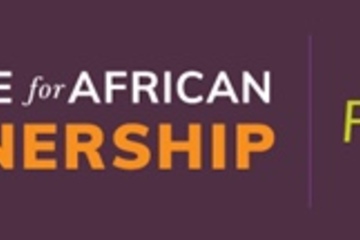
Call for Thought Pieces Regarding Race and Ethnicity in Africa and the Diaspora
AAP is issuing a call for thought pieces from anywhere in the world that are short, critical reflections of issues around race and ethnicity in higher education institutions as well as other key stakeholder organizations in Africa and the African Diaspora.
The first deadline for thought piece summary (up to 500 words) is Oct. 30, 2021. Summaries must include title, text, author’s name and affiliation.
For the full call for contributions and submission details, visit the link below.
https://aap.isp.msu.edu/engage/aap-perspectives/
Read more

By: Raquel Acosta
Due Date: Oct, 30, 2021
Culture and society
+1
Leave a comment
No Preview Available
CFA: Endangered Archives Programme Call for Applications is Open
The Endangered Archives Programme is now accepting preliminary applications for the next annual funding round – the deadline for submission of preliminary applications is Monday 15 November 2021 at 12 noon GMT. Full details of the application procedures and documentation are available on the EAP website (https://eap.bl.uk/applicants).
The Programme has funded over 430 projects in 90 countries and has helped preserve manuscripts, rare printed books, newspapers and periodicals, audio and audio-visual materials, photographs and artwork. The programme aims to digitise archives at risk of loss or decay and, where appropriate, to relocate the material to a safe local archival home. The digital copies are deposited with the local archival partners, and are all available for researchers to access freely through the British Library website.
This year, we are accepting applications through our online portal between 1st and 15th November. However, in the meantime, we are providing Word and PDF documents for applicants to perfect their preliminary applications before the online submission.
If you know of an archive in a region of the world were resources are limited, we really hope you will apply. If you have any questions regarding the conditions of award or the application process, consult our website (https://eap.bl.uk) or contact them at endangeredarchives@bl.uk
Read more

By: Raquel Acosta
Due Date: Nov, 15, 2021
Education
Leave a comment
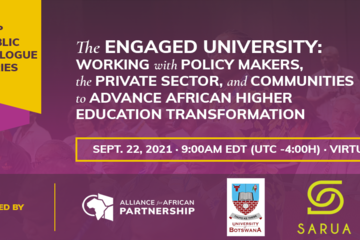
AAP Public Dialogue Series 2021
AAP is excited to be hosting our next Public Dialogue “The Engaged University: Working with policy makers, the private sector, and communities to advance African higher education transformation” on Wednesday, September 22nd at 9:00am-10:30 EDT. This dialogue session will be co-hosted by our affiliates at @The University of Botswana and those at @SARUA. This session will examine innovative strategies for African universities to engage across all sectors and the impact these engagements are having on the transformation of the African higher education sector. AAP recognizes that universities are now seeing themselves as catalysts for positive change in their communities and beyond, and is proud to be a part of this progress.
This series will be done with the help of @University World News as AAP’s media partner.
Read more

By: Raquel Acosta
Due Date: Sep, 22, 2021
Education
Leave a comment
No Preview Available
Souleymane Bachir Diagne in conversation with Wayne Modest, Aude Christel Mgba, and Ryan Skinner.
CONVERSATION | 9 Sept 2021 | 16.00-17.45 CET | Zoom online
As part of the Thinking With series, we invite Souleymane Bachir Diagne to discuss his work in conversation with Aude Christel Mgba and Ryan Skinner. In African Art as Philosophy: Senghor, Bergson and the Idea of Negritude (2011), Souleymane Bachir Diagne writes of Léopold Sédar Senghor’s lifelong project to think through “affirmation of the self [as] a natural reaction to colonial domination” (188): “Beyond affirming the aesthetic virtues revealed in pieces of art created by Africans, Senghor wished to stress the metaphysics they offered for reflection: along with the art through which it had been written, he wished to rescue a worldview, a feeling and a thinking that were also contributions to the humanism of tomorrow by African-being-in-the-world” (7-8).
“In our efforts at the Nationaal Museum van Wereldculturen to better honor and listen to the lives the ‘objects’ in our museums have led and wish to lead, we hope to better think more reciprocally in relationship to these objects and the communities invested in their being. We are compelled by Diagne’s work to think more deeply about the histories, afterlives, and temporalities in which our objects exist. How might we allow the objects to speak better from themselves, for themselves, while all the while honoring the complex positionalities of those who are enjoined to engage these objects? We understand those persons who are called upon to better honor the objects to be: those living in the places where the objects were obtained (gifted, seized, stolen); those who relate to African art from diasporic sensibilities; and those who are implicated by a colonial past as perpetrator and/or who benefit from systems of privilege, as per Michael Rothberg. Together, in Relation, and even thanks to the tensions implied by Glissantian Opacity, we hope to better be responsible to our work and engagement as professionals and visitors to our ethnographic museums.”
More about Zoom event: https://www.materialculture.nl/en/events/thinking-souleymane-bachir-diagne-african-art-phi...
Registration for Zoom event: https://us06web.zoom.us/webinar/register/WN_X6gKuBv3RVuw5FEGTCE6uw
Read more

By: Raquel Acosta
Due Date: Sep, 9, 2021
Culture and society
+1
Leave a comment
No Preview Available
Call for Abstracts: "Relations to Plants as a Heritage From Below in African Cities"
The deadline for submitting a paper for the panel "Relations to Plants as a Heritage From Below in African Cities" at the next African Studies Association of Africa (ASAA) conference, at the University of Cape Town (South Africa) from 11 to 16 April 2022, has been extended to 30 September. The submission of the paper proposal (max. 250 words) has to be done via this platform: https://2022conference.as-aa.org/submit-work/call-for-abstracts/
ASAA encourages paper presenters to reflect on the conference theme and address issues outlined in the theme description. With a massive number of abstracts submitted for presentations at ASAA conferences, the ASAA2022 Conference Committee is dedicated to guaranteeing a timely and fair review process with the international norms of double-blind peer review.
The decisions of the Scientific Committee will be communicated on 14th November 2021. ASAA early-bird registration will open on 1st November 2021. See eligibility criteria and learn about the application process in the link below!
Call for abstracts – ASAA2022 (as-aa.org)
For any queries with the above, please email: as-aa2022.org@uct.ac.za
Read more

By: Raquel Acosta
Due Date: Sep, 30, 2022
Culture and society
+1
Leave a comment
No Preview Available
Postgraduate Training Opportunities under the RUFORUM
Graduate Teaching Assistantship Program (GTA)
During the annual meeting of Vice Chancellors/Presidents/Principals/Rectors of RUFORUM Member Universities (see links about RUFORUM flier and RUFORUM at a Glance) held on 11th November 2020, the Vice Chancellors re-affirmed their commitment to the Graduate Teaching Assistantship Program that they initiated in 2014. The objectives of the GTA are to: i) Improve the quality of higher education and increase the pool of PhD-level trained academic staff in African universities; ii) Provide opportunities for the doctoral research to contribute more directly to African development; iii) Strengthen inter- university collaboration in the field of higher education in Africa; and iv) Promote staff mobility among RUFORUM member universities, and across Africa.
Following the meeting of the Vice Chancellors on 11th November 2020, the RUFORUM Secretariat is pleased to announce the availability of training opportunities at the different Member Universities as part of the GTA arrangement. The Secretariat invites for more offers from the other member universities to train GTA candidates.
Under the GTA arrangement:
The sending universities nominate the staff to be trained and RUFORUM Secretariat helps to get them placed in receiving (host) Universities
The sending universities commit to pay for travel, health insurance, upkeep and research of their staff under training
The receiving/host universities waive the fees and associated costs, and provide accommodation for the admitted GTA Fellows
Once admission process is completed, the sending and host universities and the nominated GTA Fellow sign a Tripartite Agreement to guide the hosting and training of the Fellow
In some cases where opportunities exist, the host University may attach the GTA Fellow to the research program at the hosting university
The RUFORUM Secretariat facilitates the GTA arrangement and follows up on the GTA training
The nominations by the Vice Chancellors for the available positions should be submitted to RUFORUM Executive Secretary at secretariat@ruforum.org as soon as possible.
Learn more: https://ruforum.wordpress.com/2021/08/09/postgraduate-training-opportunities-under-the-ruforum-3/?utm_source=RUFORUM+Mailing+List&utm_campaign=d18db56afe-RUFORUM+Weekly+-+Vol.3+No.25_COPY_01&utm_medium=email&utm_term=0_1fcfbb8a0b-d18db56afe-346973753&ct=t()&goal=0_1fcfbb8a0b-d18db56afe-346973753&mc_cid=d18db56afe&mc_eid=d95cf18a8dn
Read more
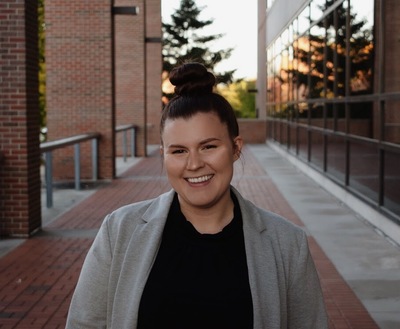
By: Madeleine Futter
Due Date: Nov, 11, 2021
Education
Leave a comment

The Humanities and Arts Research Program (HARP) Development program
The Humanities and Arts Research Program (HARP) Development program provides funds to support faculty who are conducting important research leading to creative and performance projects or activities in the arts and humanities. This limited funding is designed to support faculty in the development of projects that seem likely to enhance the reputation of the faculty member and the university.
Within the Development program, there are two panels that conduct the reviews: the Humanities Research panel and the Exhibition and Performance panel. The Humanities Research panel will review applications that are supporting research projects and scholarship broadly related to the humanities. The Exhibition and Performance panel will review proposals that support scholarship and creative activities leading to an exhibit or performance. See the FAQs for clarification.
The deadline for HARP Development applications will be in early-October, with awards announced in February. Funding will be available for a two year period beginning on March 1.
What types of projects are eligible?
HARP development projects should:
produce results or a product that is likely to receive external recognition (e.g., through a publisher's interest or through available distribution or exhibition venues) or be used beyond MSU.
ultimately lead to a scholarly or creative product (e.g., book, CD, musical composition, play, artwork) with the potential for significant impact in the discipline or related areas.
Who is eligible?
Tenured and tenure-track faculty
Faculty with uninterrupted, multi-year, fixed term appointments
Faculty with one-year appointments who are able to obtain written confirmation from their department chair of pending appointment through the duration of the grant (letters from the chair should be uploaded as part of the project description)
Academic specialists in the continuing appointment system who have the majority of their effort in the research category
Part time faculty who 1) have had an appointment for two consecutive years prior to the date of their submission, 2) have a commitment from their department chair indicating that their appointment will continue through the duration of the granting period, and 3) have an appointment of at least 50% with MSU
Faculty from Arts and Letters, Communication Arts and Sciences, James Madison, Lyman Briggs, Music, Social Science, and the Residential College in the Arts and Humanities are eligible to apply for HARP funding.
NOTE: Faculty emeriti are not eligible to apply for HARP funding.
NOTE: Faculty rank and proximity to promotion and tenure decisions will not be considered in the evaluation of proposals. All applications will be evaluated on the merit of the work being proposed.
For more information or to apply, visit the MSU Research and Innovation website
Read more
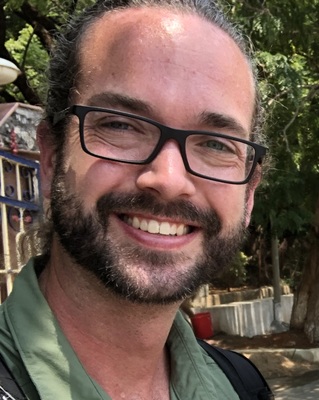
By: Derek Tobias
Due Date: Oct, 7, 2021
Culture and society
+3
Leave a comment

Discretionary Funding Initiative (DFI)
The Discretionary Funding Initiative (DFI), funded by the Michigan State University Foundation, provides bridge funds for tenure stream faculty for additional studies needed for resubmission of an unsuccessful, but nearly fundable, grant application to the same program within a funding agency.
To request funding from this program, faculty should submit a proposal via the grant proposal system. Applicants will be expected to provide copies of their previous external reviews, if applicable, and describe the work that will be completed to address the comments provided in those documents. The research associate dean of the applicant's college (lead college if appointed in multiple colleges) will review applications, and submit a prioritized list to the Office for Research and Innovation (OR&I). Requests for support approved by the research associate deans will be reviewed by the OR&I.
The maximum award from OR&I will be $25K and will require a 100% (up to $25K) match from units or colleges. Funds will be available for 18 months.
For more information or to apply, click here.
Read more

By: Derek Tobias
Due Date: Sep, 9, 2021
Agri-food systems
+5
Leave a comment
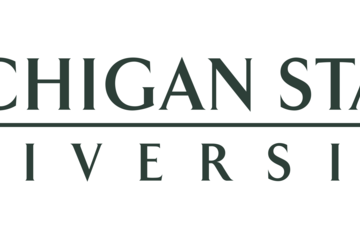
Strategic Partnership Grant
Funded jointly by the MSU Foundation and MSU colleges, the Strategic Partnership Grants (SPG) Program is an important funding mechanism to support promising new initiatives in key areas of research, scholarship and multidisciplinary collaboration. A successful SPG concept would be of sufficient caliber that it would achieve several of the following aspirations:
Create a nexus of national/international research preeminence that will raise the stature of the university, significantly differentiating MSU from its peers.
Promote productive and sustained research collaboration and productivity among faculty that, without this funding, would otherwise not occur.
Promote work that is high risk, high return, with a potential for high reputational benefit.
Position MSU faculty to compete successfully for significant external funding by creating a path to sustainability of the research endeavor; builds a bridge to a future, not a project that ends at the end of the SPG funding.
Promote the development of research ideas with significant (long term) commercial potential and/or broad community or global impact.
The SPG program enables such opportunities by supporting research and scholarship that is leading-edge, interdisciplinary, and capitalizes on the existing intellectual and research resources at Michigan State University. The SPG program advances MSU Foundation’s mission to provide grant funding for the development of new knowledge, to lay the groundwork for centers of excellence at the university, and to invest in the development of Michigan State University as one of the nation's leading research institutions. Managed by the Office of Research and Innovation (OR&I), proposals for new and innovative research initiatives are solicited annually in a two-stage review process (preliminary proposals and invited full proposals). Up to five applications will be submitted for review by the MSU Foundation in June of each year.
Eligibility
The SPG program is open to multidisciplinary or multi-institutional PI teams comprised of:
Full time tenured and tenure-track faculty
Faculty with uninterrupted, multi-year, fixed term appointments in academic departments (faculty with visiting or adjunct appointments are not eligible)
Faculty with one-year appointments who obtain written confirmation from their departmental chair that they will be appointed through the duration of the grant (letters from the chair should be attached to the faculty’s CV and uploaded under the PI/Co-PI Information tab).
Academic specialists in the continuing appointment system who have the majority of their effort in the research category (the term "faculty" in this RFP includes these specialists)
Click here for more information on the funding opportunity or to apply
Read more

By: Derek Tobias
Due Date: Sep, 9, 2021
Education
Leave a comment

Seeking partners for our emerging community leaders e-course project! Urgent
Michigan Fellows Agribusiness Initiative (MFAI) a Ugandan-based NGO formed by alumni from MSU/AAP PFP, is seeking partners for a proposed project titled: Emerging community leaders E-course. The project will seek funds from the US Missions Kampala under the funding call. Find the link Here. The E-course content focuses on leadership, project management, civil engagement, and fundraising. Interested persons, organizations, institutions with expertise in these four areas and website designing are urgently needed. Kindly reach out to Raymond by email at raymondakiiki091@gmail.com if you are interested. Kindly note that the deadline for submission is fast approaching which is 20th August 2021.
Read more
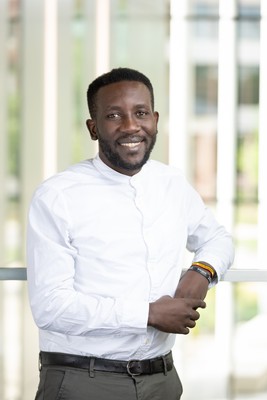
By: Raymond Musiima
Due Date: Aug, 20, 2021
Youth empowerment
+1
Leave a comment
Call for Papers on African Consumer Marketing!
October 25-26 (Monday-Tuesday), 2021 | Online / Hybrid
Following the success of the Inaugural “Out of (and Into) Africa” Conference - International Symposium on African Consumer Marketing and Firm Strategies - which was held at the Graves School of Business and Management, Morgan State University, Baltimore in 2018, we are now excited to launch the next edition of the conference with multi-HBCU involvement.
Sponsored by: Morgan State University, CIBER-CMCC, and Howard University
Paper Submission Deadline Extended to: July 20, 2021
Submit your paper via the Paper Submission Form and register via the Conference Registration Form below.
Read more

By: Madeleine Futter
Due Date: Jul, 20, 2021
Education

Leave a comment